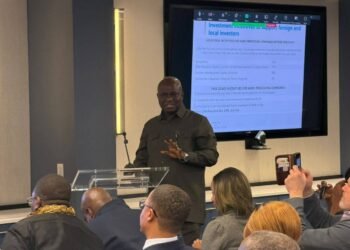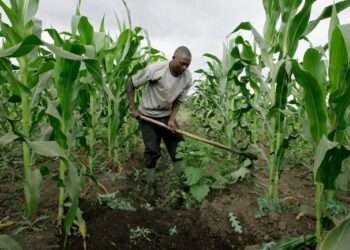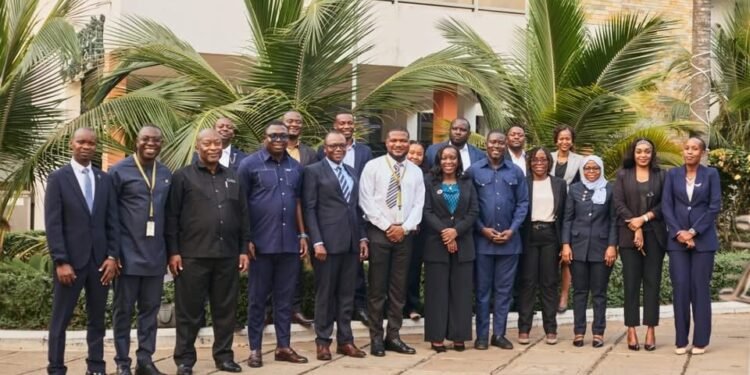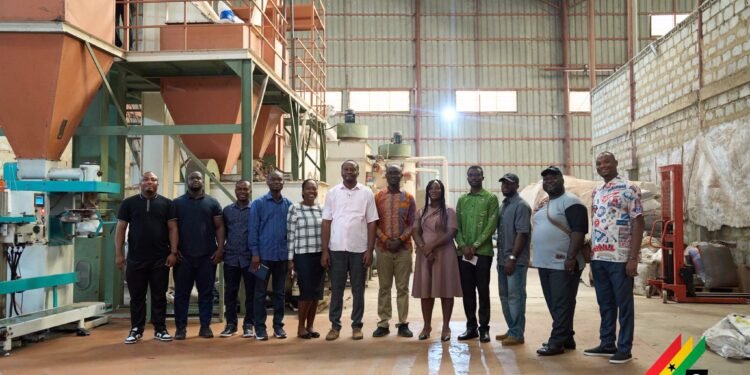Deputy Minister of Agriculture, John Dumelo, has officially unveiled the Bridge in Agriculture Programme, a pioneering $87 million initiative designed to uplift Ghana’s agricultural sector by unlocking affordable capital and technical support for Small and Medium Enterprises (SMEs).
The programme particularly targets women and youth entrepreneurs, with the overarching goal of making agriculture more inclusive, technology-driven, and commercially viable.
Speaking at the launch event, Mr Dumelo underscored agriculture’s critical role in Ghana’s economy. “Agriculture employs close to 40% of Ghana’s total workforce and supports about 75% of the rural population,” he said. Despite this, the sector remains hindered by limited financing, climate challenges, outdated infrastructure, and the slow adoption of modern techniques. The Bridge in Agriculture Programme, he added, is a strategic solution to these enduring bottlenecks.
With $87 million allocated through partner banks, the initiative will provide low-interest loans capped at 7%, significantly below market rates. These funds will be made accessible to agribusinesses, especially those led by young people and women. Mr Dumelo emphasized that this approach is a deliberate step toward building an inclusive and sustainable agricultural economy.
“This programme is not just about financing; it’s about enabling a generational shift from subsistence farming to modern, competitive agribusiness,” Dumelo said. He encouraged young entrepreneurs to “start small, grow gradually, and you will become bigger one day.”

Technical Support and Skills Development
Beyond financial support, the programme includes hands-on technical assistance and business development services. These are delivered through a consortium of ten strategic partners led by CrossBoundary Advisory. Key players include Africa Skills Hub and iBuilders Africa, who are responsible for training beneficiaries in digital and vocational skills, while Peswa serves as the technology partner enabling efficiency and innovation in agricultural practices.
According to Fanta Fandi, Programme Lead for the Bridge in Agriculture Programme, the initiative is a flagship programme of the Mastercard Foundation, conceived in 2023 as a response to the structural barriers that hinder growth in the agricultural sector.
Fandi explained that the Mastercard Foundation is providing partner financial institutions with 0% interest repayable grants. This unique financing model allows these banks to offer loans to agribusinesses at a maximum of 7% interest while also embedding guarantees and covering high loan monitoring costs inherent to the agricultural sector. This ensures that risks are minimized for both lenders and borrowers, creating a more attractive environment for investing in agriculture.
Already, the programme has impacted approximately 86,000 young Ghanaians aged 18 to 35 by facilitating access to work opportunities—either through enterprise support or dignified employment placements. With a target of reaching over 400,000 beneficiaries, 70% of whom will be women, the programme promises a seismic shift in how youth and women engage with agriculture in Ghana.
Synergy with National Programmes
The initiative is in alignment with the Ministry of Agriculture’s broader “Food to Feed Ghana” programme. This government strategy aims to ensure food self-sufficiency by transitioning Ghana’s agricultural practices to more productive, technology-enabled, and market-ready systems.
“By aligning with Food to Feed Ghana, this initiative contributes to national food security while fostering entrepreneurship. It is about turning agriculture into a career path of dignity, innovation, and economic opportunity for our youth.”
John Dumelo
The Bridge in Agriculture Programme represents a robust model of public-private collaboration, with government backing, private sector execution, and donor support. The partnership between the Mastercard Foundation and CrossBoundary, along with its network of local organizations, ensures that the programme has both global resources and local relevance.
With such strategic investments and collaborative efforts, Ghana’s agricultural sector is poised for a revolution. The programme marks a critical milestone in the country’s journey toward inclusive agricultural transformation, job creation, and sustainable economic development.
READ ALSO: Ghana’s High Interest Rates Limiting Credit to Real Sector– Deloitte Report























